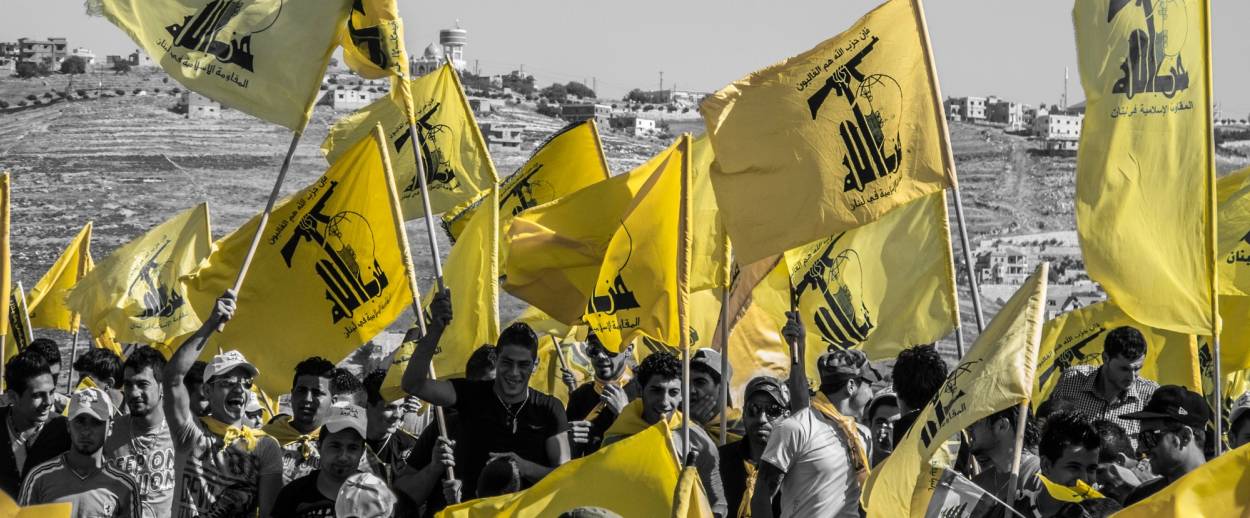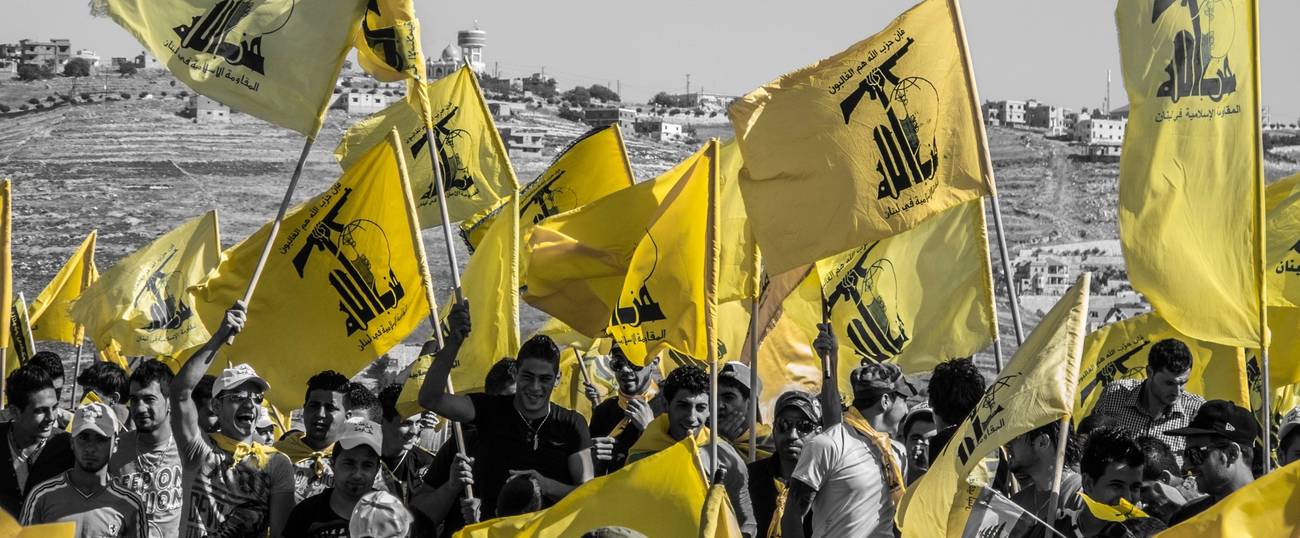Our Incoherent Lebanon Policy
Why would an administration that instinctively mistrusts state-building funnel millions to Hezbollah-run institutions?




State building is the core of US policy in Lebanon. As part of this chimeric policy, now over a decade old, Washington has been throwing hundreds of millions of dollars at Lebanon. The State Department proudly recalled last month at a donor conference for Lebanon in Rome, that in 2017 the US gave the Hezbollah-run country $250 million in assistance, and announced it will complete delivery of more weapons systems to the Hezbollah-aligned Lebanese Armed Forces as part of a $340 million aid package.
Like its predecessors, the administration justifies this policy of state building with surreal talking points. The latest of those can be seen in a statement by President Trump earlier this month in support of yet another donor conference for Lebanon. The statement commended the Hezbollah puppet government in Beirut, held out the prospect of American companies investing in the Hezbollah-contaminated economy, and expressed support for strengthening Lebanon’s “state institutions.” This commitment of support was pegged to Lebanon’s parliamentary elections next month. The statement went so far as to describe this impending farce as “historic,” so as to underscore the urgency of giving Lebanon hundreds of millions of dollars. The idea is that by building “state institutions” we—somehow—combat Hezbollah’s and Iran’s influence. And of course elections are essential to this state building project. The US has convinced itself this is all real and that the election actually matters—it’s historic! Never mind the reality that the so-called “anti-Hezbollah” parties have held the majority in parliament since 2005, a fact which has not had even a marginal effect on Hezbollah’s absolute control over the country, the government, and its “state institutions.”
What makes this odder still is that president Trump instinctively recognizes these state-building fantasies are for suckers. Over the past several weeks, he has publicized this conviction repeatedly. The instance which received most attention was an address in Ohio last month, where the president vented his frustration with spending American taxpayer money in the Middle East on such futile projects. It was during this event that Trump made public his desire to get US troops out of Syria “very soon,” which riled the Pentagon and drew much criticism in Washington.
But the speech was about more than Syria. For instance, Trump was likely voicing his displeasure with the Afghanistan venture, which he has begrudgingly agreed to maintain, at the urging of his generals and against his gut instinct. In recent weeks, he has twice (three times if you count his Tuesday presser with the president of France) referenced the 17-year timeframe — the duration of the US presence in Afghanistan. It was likely Afghanistan the president had in mind when he sarcastically quipped to the audience in Ohio how “We’d build a school, they’d blow it up. We’d build it again, they’d blow it up. We’d build it again — hasn’t been blown up yet, but it will be.”
To be sure, the president’s preference was reflected in his decision making on Syria. Right after the Ohio event, Trump reportedly ordered the State Department to freeze some $200 million in funds for recovery and stabilization efforts in Syria. Whatever Trump decides on the status of US troops deployed in the north and east of that country, he is opposed to anything that smacks of state-building in the weak, fractured and failed states of the region.
Which begs the question: If the president wants to end ill-conceived, wasteful investments in the Middle East, then why continue this state-building approach in Lebanon? It’s an incoherent policy.
The ready back-up pretext is—what else?—ISIS. Only this is as fantastical an argument as the notion of “strengthening Lebanese state institutions.” Lebanon is not really a front or a meaningful partner in the anti-ISIS campaign. Using ISIS as justification for throwing money at Lebanon compounds the policy incoherence. Moreover, it shines the spotlight on a serious problem with US counterterrorism policy. Counterterrorism campaigns, and some of the doctrines attached to them, have intersected with open-ended commitments, which is precisely what has irked the president. But aside from being a gateway to state-building projects, counterterrorism has also exacerbated America’s strategic confusion in the region, boosting the geopolitical position of its adversaries. Former president Obama understood well that the anti-ISIS campaign could serve to reinforce his policy of realignment with Iran in the region. As such, ISIS became a useful cover for shoring up the Iranian order in Lebanon.
By continuing this policy in Lebanon, Trump is not only violating his own stated principle on misspending American taxpayer money building castles in the sand, but also, he is putting himself in the awkward position of continuing his predecessor’s policy of propping up Iranian regional holdings. It makes no sense. If president Trump is fundamentally opposed to underwriting Middle Eastern mirages, then the first place to start is to quit funding the Iranian satrapy in Beirut.
Tony Badran is Tablet’s news editor and Levant analyst.